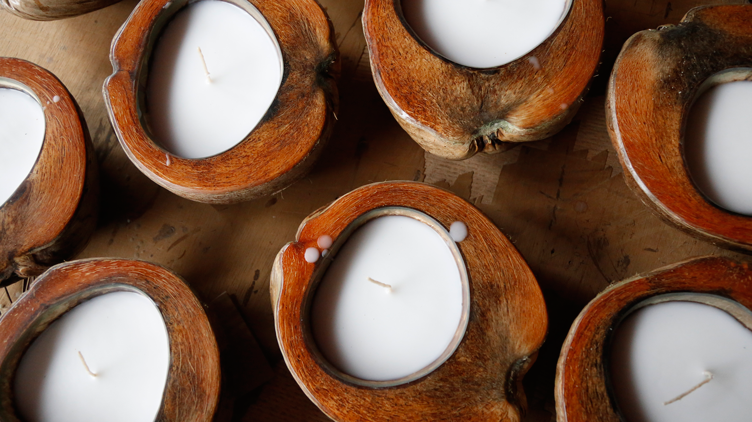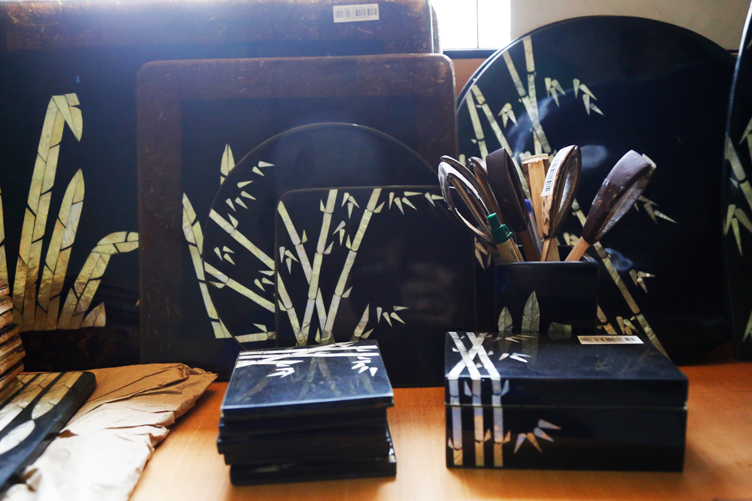DECORATING LIVES WITH THE TREE OF LIFE
Starting with a loan worth Php10,000 couple, Maxima and Rolando Madera did not think that their home décor business would eventually make it big.
It started in 1988 when Rolando’s employer was on the verge of closing down their export business. The couple decided to file a loan from a local cooperative to try their luck in starting their home décor business and called it Babylan’s Cococrafts.
Thirty-one years on, the couple is still amazed at how their products were able to penetrate high-end stores in the Philippines and countries such like Maldives and the United States.
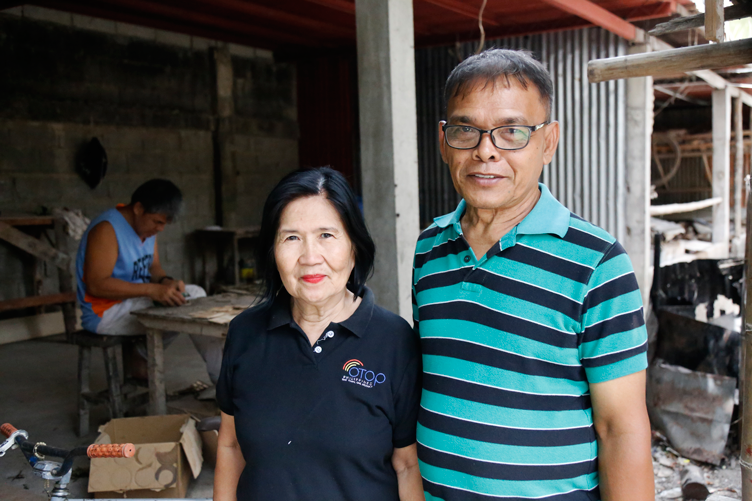
Starting small
Maxima recalled their situation when they were just starting. They lived in a depressed area in Bacolod City. She had to resign from her job to focus on rearing their children, who became sickly then because of the surroundings. “It’s like our version of Smokey Mountain. We had no money, so it was not easy to move out,” said Maxima.
This was in the same place where they put up a small workshop in their home. They only had two workers who were engaged on a per order basis.
“We were only using plain, laminated coconut shells then in creating home decors. We did not know yet how to inject creativity into our products,” said Maxima.
After seven years, a group of designers from the Advocate of Philippines Fair Trade Inc. (APFTI) encouraged Maxima and Rolando to introduce more products and use more indigenous materials such as capiz shells.
“They gave us some design ideas for our home decors, but it was my husband who executed those ideas,” shared Maxima who added that Rolando already had a wealth of experience in the same business because of his former employers who were exporting handicrafts.
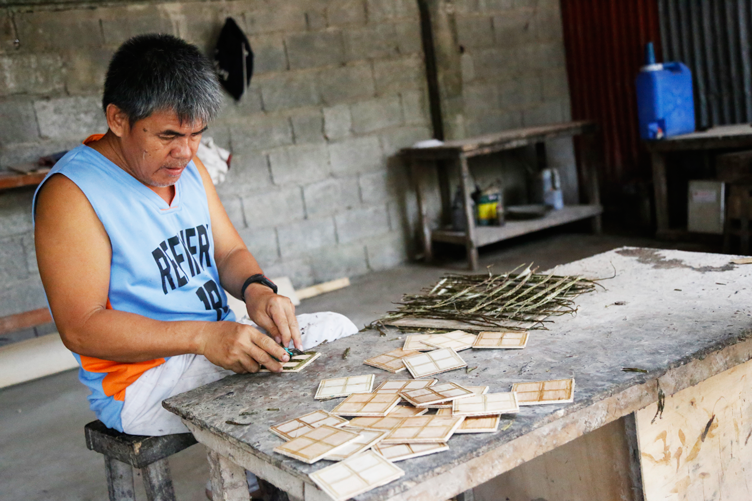
To be able to join trade fairs, Maxima obtained loans to finance their production and logistics. On the average, the couple would borrow around Php 20, 000 per trade fair event, but would pay this off after each event.
“We were able to increase our profit—slowly, but surely,” said Maxima.
The couple faced a great challenge in 1995 when they were duped to pay P100,000 for a P20,000 loan to participate in a trade fair. The problem was eventually resolved, but brought stress to the couple who was then still trying to grow their business.
Fortunately, breakthrough happened that same year as the firm got more orders from institutional buyers with the application of creative and innovative designs, making their products stand out during trade fairs.
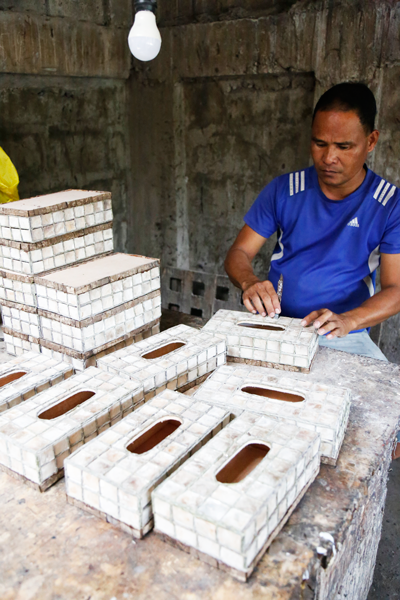 From plain, laminated coconut home decors, Babylan’s now produces placemats, jewelry boxes, wall frames, lamp shades, wall decors, and table tops, among others. Many of these products have reached posh malls and high-end resorts.
From plain, laminated coconut home decors, Babylan’s now produces placemats, jewelry boxes, wall frames, lamp shades, wall decors, and table tops, among others. Many of these products have reached posh malls and high-end resorts.
Boosting the local economy
Maxima is proud that they are helping source raw materials from the community. They made sure to get from local sources to increase the income of the locals. This also means less cost for the couple since all raw materials do not need to be brought in from a far place. In return, this also pumps Bacolod’s local economy.
They also hire workers who live nearby. Presently, Babylan has eight workers but would hire more if there is an increase in product demand. These workers are provided with social security and basic health insurance benefit.
“We also maintain a good working relationship with them because they are a crucial factor in making this business successful,” said Rolando.
He stressed the importance of taking care of the human resource aspect of any business.
Rolando handles the production side, which involves dealing with workers. Maxima, meanwhile, focused on the marketing side. One of their children would help in the financial aspect of the business.
DTI as an enabler
Maxima said they are grateful to the Department of Trade and Industry (DTI) for its continued support since the start of their business, especially during struggling periods to sustain the enterprise.
Babylan’s has always been invited to trade fairs organized by DTI that opened endless opportunities to the enterprise, according to the couple.
“I don’t think we will be successful if we did not learn many things from DTI,” said Maxima who also took part in the Kapatid Mentor ME (KMME) Program. She herself is now often tapped as a mentor to encourage and empower those who want to scale up their businesses.
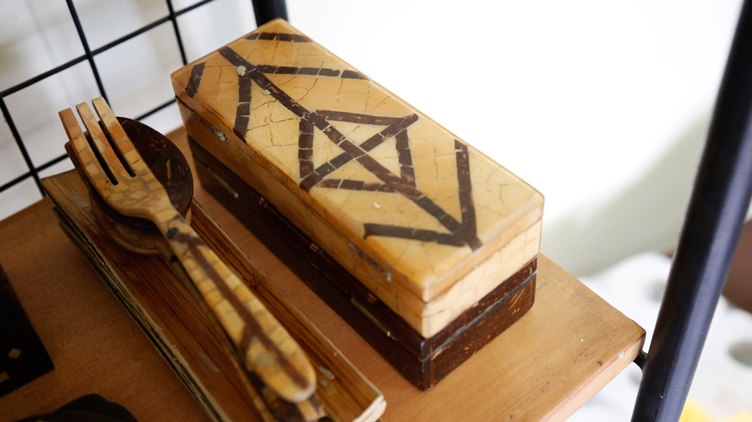
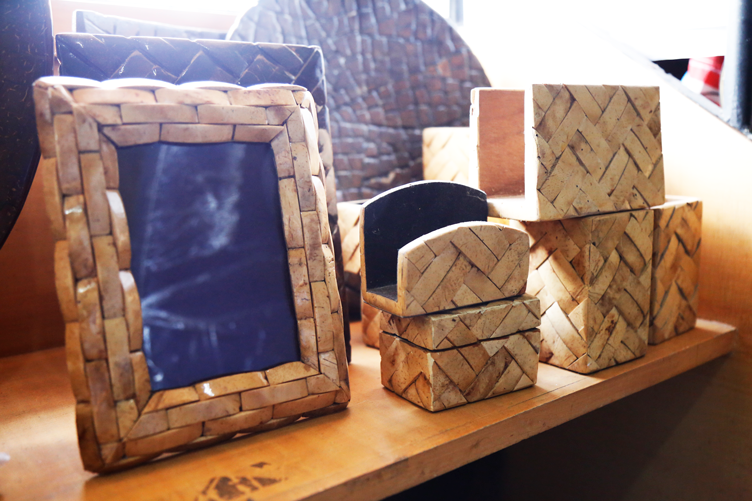
Maxima is amazed on how their small business was able to provide them a steady source of income. Through Babylan, they were able to send their children to reputable schools and buy properties such as real estate and a car.
One of their children is now an accountant, and serves a regular speaker at DTI trainings for business owners.
Gone are the days of getting a loan to be able attend trade fairs.
“Through the years, we also have learned how to be careful with our finances,” said Rolando who said this is also a crucial factor for any enterprises to be sustainable. It could make or break any business—regardless of how small it is, Rolando added.
While they are already on their prime years, Maxima and Rolando’s love for their craft remains.
“We’re already in our retirement age, but we still want to serve our clients. And we love what we do,” said Maxima.
To succeed, Maxima shared the greatest lesson they learned in more than three decades of enterprise work, “Combine your love for your business with hard work and determination,” said Maxima.
